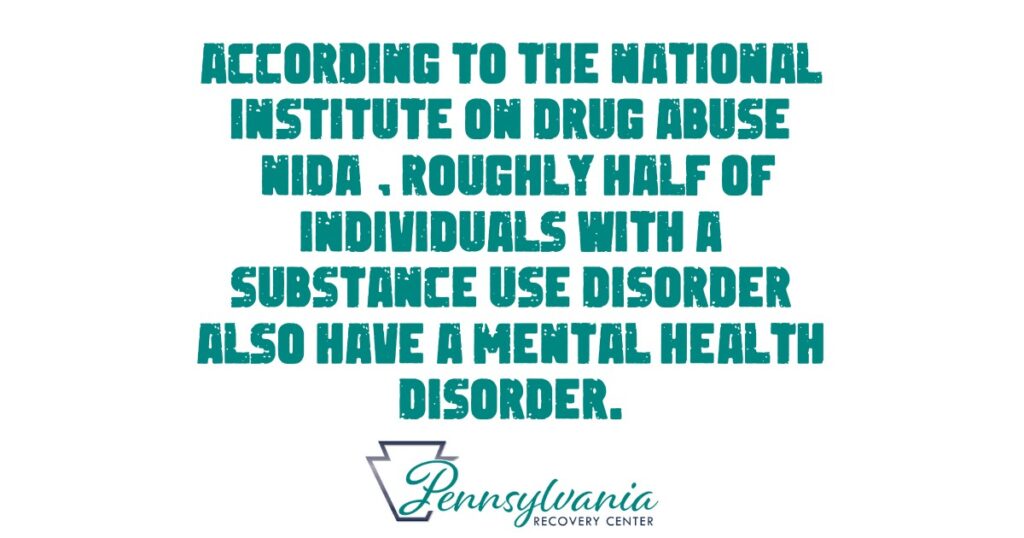Mental Health & Addiction
Mental health and addiction are closely intertwined, with many individuals struggling with substance abuse also experiencing mental health disorders such as anxiety, depression, or PTSD. In fact, according to the National Institute on Drug Abuse (NIDA), roughly half of the individuals with a substance use disorder also have a mental health disorder.
This connection between mental health and addiction is not a coincidence. Studies have shown that substance abuse can actually worsen or trigger symptoms of mental health disorders. For example, alcohol abuse can worsen symptoms of depression, while cocaine use can lead to anxiety and panic attacks.
Similarly, individuals with mental health disorders may be more susceptible to addiction due to a variety of factors, including genetics, childhood trauma, and stress. In fact, the Substance Abuse and Mental Health Services Administration (SAMHSA) reports that individuals with mental health disorders are twice as likely to develop a substance use disorder compared to the general population.
Given the close connection between mental health and addiction, it is crucial to address both issues simultaneously in order to achieve successful treatment outcomes. This approach, known as an integrated treatment, involves addressing both the substance abuse and the underlying mental health disorder through a combination of therapy, medication, and support services.
One type of integrated treatment is known as Cognitive Behavioral Therapy (CBT). CBT is a type of talk therapy that focuses on identifying and changing negative thought patterns and behaviors. This type of therapy can be effective for both mental health and addiction treatment.
Another treatment option is medication-assisted treatment (MAT), which involves the use of medications to reduce cravings and manage withdrawal symptoms during detox. MAT can be effective for individuals with opioid or alcohol use disorders, and is often used in conjunction with behavioral therapy.
While the specific treatment options may differ depending on the individual's unique needs and circumstances, the importance of treating both mental health and addiction simultaneously cannot be overstated. According to SAMHSA, integrated treatment can lead to improved outcomes, including reduced substance use, improved mental health, and increased social functioning.
In addition to these treatment options, support groups such as Alcoholics Anonymous (AA) and Narcotics Anonymous (NA) can also provide valuable peer support and accountability. These groups can be especially helpful for individuals who may feel isolated or alone in their struggles with addiction and mental health.
In conclusion, the connection between mental health and addiction is complex and multifaceted, with many individuals experiencing both issues simultaneously. By addressing both substance abuse and underlying mental health disorders through integrated treatment options such as therapy, medication-assisted treatment, and support groups, individuals can achieve successful outcomes and lead fulfilling, healthy lives.



